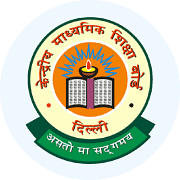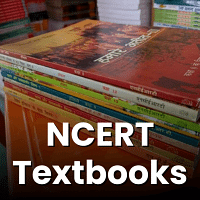CTET & State TET Exam > CTET & State TET Questions > Children’s errors and misconceptions:a)...
Start Learning for Free
Children’s errors and misconceptions:
- a)Are a hindrance and obstacle to the teaching-learning process
- b)Should be ignored in the teaching-learning process
- c)Signify that children’s capabilities are far inferior to that of adults
- d)Are a significant step in the teaching-learning process
Correct answer is option 'D'. Can you explain this answer?
| FREE This question is part of | Download PDF Attempt this Test |
Most Upvoted Answer
Children’s errors and misconceptions:a)Are a hindrance and obsta...
Error: When a learner can’t master a topic, he/she is vulnerable to make errors. Errors are nothing but incorrectness made by a child during learning.
Misconceptions: It takes place due to the mismatch in previously assimilated and newly accommodated knowledge.
Children’s errors and misconceptions:
Misconceptions: It takes place due to the mismatch in previously assimilated and newly accommodated knowledge.
Children’s errors and misconceptions:
- are significant steps in the teaching-learning process.
- are necessary in the learning process to give insight into children's thinking.
- help the teacher to be aware of learners' learning styles, to cater them according to their needs.
- are considered as a part of the teaching-learning process as it helps to understand the child.
So, it could be concluded that children’s errors and misconceptions are a significant step in the teaching-learning process.
Free Test
FREE
| Start Free Test |
Community Answer
Children’s errors and misconceptions:a)Are a hindrance and obsta...
Children are young human beings who are typically under the age of 18. They are considered to be in a stage of development and growth, both physically and mentally. Children are often dependent on adults for care and guidance, and they rely on them for their basic needs such as food, shelter, and education.
Children have various stages of development, including infancy, toddlerhood, childhood, and adolescence. Each stage comes with its own set of physical, cognitive, and emotional changes. During these stages, children learn and develop skills such as walking, talking, problem-solving, and social interaction.
Children engage in various activities and play to learn and explore the world around them. Play is an essential part of their development as it helps them develop their motor skills, social skills, and cognitive abilities. It also allows them to express their feelings, creativity, and imagination.
Education is crucial for children as it helps them acquire knowledge, skills, and values necessary for their future. Schools provide children with formal education, where they learn subjects like math, science, history, and language arts. Education also helps children develop critical thinking, problem-solving, and communication skills.
Children's rights are protected by various international conventions and laws. These rights include the right to education, healthcare, protection from abuse and exploitation, and the right to express their opinions. It is important for adults and society as a whole to ensure that children are given the necessary care, support, and opportunities to thrive and reach their full potential.
Children have various stages of development, including infancy, toddlerhood, childhood, and adolescence. Each stage comes with its own set of physical, cognitive, and emotional changes. During these stages, children learn and develop skills such as walking, talking, problem-solving, and social interaction.
Children engage in various activities and play to learn and explore the world around them. Play is an essential part of their development as it helps them develop their motor skills, social skills, and cognitive abilities. It also allows them to express their feelings, creativity, and imagination.
Education is crucial for children as it helps them acquire knowledge, skills, and values necessary for their future. Schools provide children with formal education, where they learn subjects like math, science, history, and language arts. Education also helps children develop critical thinking, problem-solving, and communication skills.
Children's rights are protected by various international conventions and laws. These rights include the right to education, healthcare, protection from abuse and exploitation, and the right to express their opinions. It is important for adults and society as a whole to ensure that children are given the necessary care, support, and opportunities to thrive and reach their full potential.
Attention CTET & State TET Students!
To make sure you are not studying endlessly, EduRev has designed CTET & State TET study material, with Structured Courses, Videos, & Test Series. Plus get personalized analysis, doubt solving and improvement plans to achieve a great score in CTET & State TET.

|
Explore Courses for CTET & State TET exam
|

|
Similar CTET & State TET Doubts
Children’s errors and misconceptions:a)Are a hindrance and obstacle to the teaching-learning processb)Should be ignored in the teaching-learning processc)Signify that children’s capabilities are far inferior to that of adultsd)Are a significant step in the teaching-learning processCorrect answer is option 'D'. Can you explain this answer?
Question Description
Children’s errors and misconceptions:a)Are a hindrance and obstacle to the teaching-learning processb)Should be ignored in the teaching-learning processc)Signify that children’s capabilities are far inferior to that of adultsd)Are a significant step in the teaching-learning processCorrect answer is option 'D'. Can you explain this answer? for CTET & State TET 2024 is part of CTET & State TET preparation. The Question and answers have been prepared according to the CTET & State TET exam syllabus. Information about Children’s errors and misconceptions:a)Are a hindrance and obstacle to the teaching-learning processb)Should be ignored in the teaching-learning processc)Signify that children’s capabilities are far inferior to that of adultsd)Are a significant step in the teaching-learning processCorrect answer is option 'D'. Can you explain this answer? covers all topics & solutions for CTET & State TET 2024 Exam. Find important definitions, questions, meanings, examples, exercises and tests below for Children’s errors and misconceptions:a)Are a hindrance and obstacle to the teaching-learning processb)Should be ignored in the teaching-learning processc)Signify that children’s capabilities are far inferior to that of adultsd)Are a significant step in the teaching-learning processCorrect answer is option 'D'. Can you explain this answer?.
Children’s errors and misconceptions:a)Are a hindrance and obstacle to the teaching-learning processb)Should be ignored in the teaching-learning processc)Signify that children’s capabilities are far inferior to that of adultsd)Are a significant step in the teaching-learning processCorrect answer is option 'D'. Can you explain this answer? for CTET & State TET 2024 is part of CTET & State TET preparation. The Question and answers have been prepared according to the CTET & State TET exam syllabus. Information about Children’s errors and misconceptions:a)Are a hindrance and obstacle to the teaching-learning processb)Should be ignored in the teaching-learning processc)Signify that children’s capabilities are far inferior to that of adultsd)Are a significant step in the teaching-learning processCorrect answer is option 'D'. Can you explain this answer? covers all topics & solutions for CTET & State TET 2024 Exam. Find important definitions, questions, meanings, examples, exercises and tests below for Children’s errors and misconceptions:a)Are a hindrance and obstacle to the teaching-learning processb)Should be ignored in the teaching-learning processc)Signify that children’s capabilities are far inferior to that of adultsd)Are a significant step in the teaching-learning processCorrect answer is option 'D'. Can you explain this answer?.
Solutions for Children’s errors and misconceptions:a)Are a hindrance and obstacle to the teaching-learning processb)Should be ignored in the teaching-learning processc)Signify that children’s capabilities are far inferior to that of adultsd)Are a significant step in the teaching-learning processCorrect answer is option 'D'. Can you explain this answer? in English & in Hindi are available as part of our courses for CTET & State TET.
Download more important topics, notes, lectures and mock test series for CTET & State TET Exam by signing up for free.
Here you can find the meaning of Children’s errors and misconceptions:a)Are a hindrance and obstacle to the teaching-learning processb)Should be ignored in the teaching-learning processc)Signify that children’s capabilities are far inferior to that of adultsd)Are a significant step in the teaching-learning processCorrect answer is option 'D'. Can you explain this answer? defined & explained in the simplest way possible. Besides giving the explanation of
Children’s errors and misconceptions:a)Are a hindrance and obstacle to the teaching-learning processb)Should be ignored in the teaching-learning processc)Signify that children’s capabilities are far inferior to that of adultsd)Are a significant step in the teaching-learning processCorrect answer is option 'D'. Can you explain this answer?, a detailed solution for Children’s errors and misconceptions:a)Are a hindrance and obstacle to the teaching-learning processb)Should be ignored in the teaching-learning processc)Signify that children’s capabilities are far inferior to that of adultsd)Are a significant step in the teaching-learning processCorrect answer is option 'D'. Can you explain this answer? has been provided alongside types of Children’s errors and misconceptions:a)Are a hindrance and obstacle to the teaching-learning processb)Should be ignored in the teaching-learning processc)Signify that children’s capabilities are far inferior to that of adultsd)Are a significant step in the teaching-learning processCorrect answer is option 'D'. Can you explain this answer? theory, EduRev gives you an
ample number of questions to practice Children’s errors and misconceptions:a)Are a hindrance and obstacle to the teaching-learning processb)Should be ignored in the teaching-learning processc)Signify that children’s capabilities are far inferior to that of adultsd)Are a significant step in the teaching-learning processCorrect answer is option 'D'. Can you explain this answer? tests, examples and also practice CTET & State TET tests.

|
Explore Courses for CTET & State TET exam
|

|
Suggested Free Tests
Signup for Free!
Signup to see your scores go up within 7 days! Learn & Practice with 1000+ FREE Notes, Videos & Tests.
























